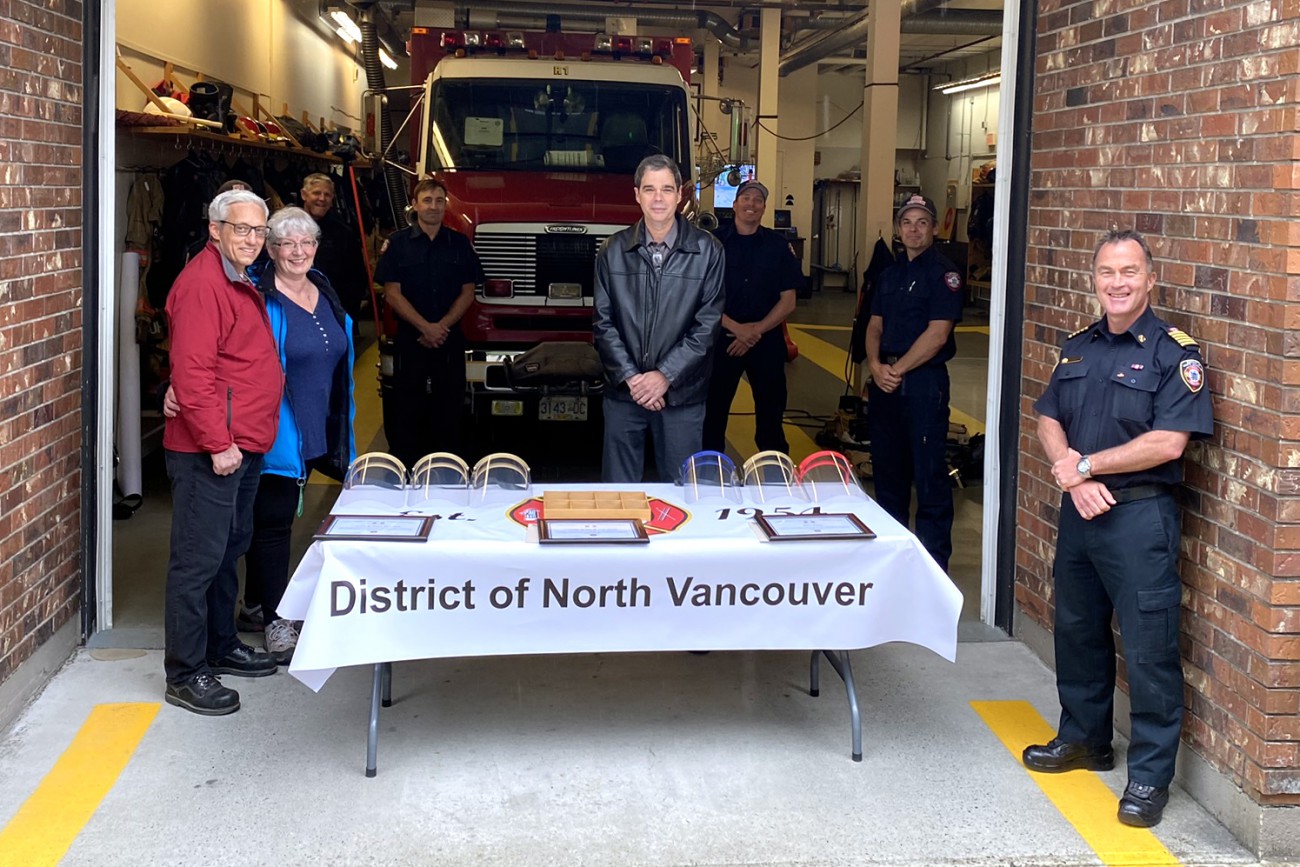COVID-19 pandemic response
The emergence of a global pandemic in March of 2020 required the DNVFRS to quickly adapt and develop a strategy that would allow us to maintain our current level of professional emergency services safely and responsibly.
Some of the initiatives that we implemented in 2020 include:
Specialized Positions — We assigned a Chief Officer to a full-time Emergency Management role coordinating our response to the pandemic following our Pandemic/Infectious Disease Plan. We also assigned a staff member to the role of Infection Control Officer to ensure our frontline response met and exceeded best practices in the field.
Virtual Town Halls — We implemented regular virtual meetings that brought all five fire stations, the training centre and command staff together for sessions that provided regular updates on COVID-related issues, changing medical response protocols, and further guidance from our Medical Director.
Altered Work Week Program — To address the number of staff in the workplace during the pandemic, we implemented a work week model that ensured added depth for on-site command staff 24/7 to support pandemic-level operations. This model will be used again for long-duration incidents, natural disasters, or in the event the pandemic increases in severity.
Aeroclave Decon Units — We installed Aeroclave decontamination units at all fire stations to disinfect fire engines, equipment, and buildings and reduce the risk of exposure to dangerous pathogens.
Fire Training Risk Mitigation Plan — At the onset of the pandemic, we developed procedures and precautions that would allow our firefighters to continue to fulfill our mandatory training and maintain all of our personnel’s safety.
Procuring Medical Personal Protective Equipment (PPE) — To prevent the risk of medical PPE shortages, we worked collaboratively with our partners to secure alternative and reliable PPE sources, building out our critical resource stockpiles. This allowed us to provide uninterrupted medical response services safely.

We recognize that the COVID-19 pandemic will continue into 2021 and are planning to implement additional measures this year, including:
Resource Deployment — We are focused on moving to a ‘Closest Hall’ dispatching model that will further remove municipal boundaries in the deployment of fire and rescue to ensure the timeliest response to emergencies across the North Shore.
Public Education — With limited access to schools and public events during the pandemic, we will build on our ability to deliver fire and life safety education virtually. A primary focus will be on using digital technology to provide virtual engagement and information delivery.
Learning Management System — To limit potential exposure between staff at training events, we will deliver most lecture and classroom-based activities online ahead of practical Training sessions. The Learning Management System incorporates several features that provide engaging and interactive training formats that we will continue to build upon in the coming years.
